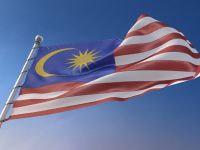There is a shared perception among Afghanistan's neighbors that a new broad-based government must replace the Taliban in Kabul, EU External Affairs Commissioner Chris Patten said Tuesday.
Briefing the European Parliament on last week's EU ministerial troika mission to Pakistan, Iran and key Arab states, Patten said it was up to Afghans themselves to decide how to put together such a government.
But he argued that the international community had a key role to play to "facilitate" the formation of a post-Taliban regime, and to help foot the bill for Afghanistan's reconstruction.
"What is certain is that no wholly military solution is possible in Afghanistan," said Patten, a member of the troika mission that was led by Belgian Foreign Minister Louis Michel.
Belgium currently holds the rotating presidency of the 15-nation European Union.
The EU commissioner for humanitarian aid, Poul Nielson, meanwhile added his voice to growing fears of a massive humanitarian crisis as winter closes in on Afghanistan, alongside the threat of war.
"The internal situation is extremely grave. People who make it to the border look weaker than before ... We are in for a very, very large threat within less than half a year, even if things go well in terms of stability," Nielson told the EU parliament.
He said there was less a problem with raising funds than with getting food to Afghans, untold millions of whom have fled their towns and villages.
"Prospects for delivering aid are quite poor," he said.
And never, he added, has the European Union -- the world's biggest giver of humanitarian and development aid -- had to respond to a crisis "with so little known elements."
Nielson said he would be seeking more funds on top of the $24.3 million already earmarked for Afghanistan by the European Union. Since 1991 the EU has directed more than 400 million euros' worth of assistance to the country.
Patten said the EU troika found "general agreement" in Islamabad and Tehran that the political situation in Afghanistan -- where the Taliban is suspected of sheltering Islamic extremist Osama bin Laden -- was extremely fluid.
There was also "greater uncertainty" about the Northern Alliance following the killing last month of its leader Ahmed Shah Massoud, who visited the European Parliament six months ago.
But Patten added: "There is a shared perception of what the outcome should be -- a broad-based government" in Kabul that would take into account the "security concerns" of neighboring states.
Such a government might come out of a "loya jirga" or traditional assembly of leaders of Afghanistan's many ethnic groups, Patten said, stressing however that it was up to Afghans to decide how to proceed.
Such a tribal assembly was proposed Monday by deposed Afghan monarch Mohammed Zahir Shah, who last week received several European Parliament deputies at his home in Rome.
"He's the only Afghan figure who can unite all the warring factions," said Charles Tannock, a British Conservative MEP who met the 86-year-old ex-king for 90 minutes and found him to be "cogent and fit enough" to lead his land back to stability -- STRASBOURG (AFP)
© 2001 Al Bawaba (www.albawaba.com)








